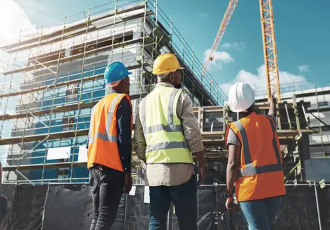
Too Many Planning Layers Stall Project Approvals
Residential builders are perplexed, puzzled and perturbed at the extraordinary and inordinate length of time it takes to get a home or condo development project approved in Ontario.
In Toronto, for example, it takes 908 days or two and a half years for site plan approval, up from 21 months two years earlier, and 713 days or nearly two years for a zoning bylaw decision. Presently, the city ranks last among 20 Canadian cities in terms of speed for approvals.
Waiting for approvals costs builders time and money. Each year a project is delayed adds between eight and 14 percent in construction-related costs, or between $9 and $19 per square foot.
Bottom line here is that these delays are only making housing more costly to build – adding to the price tag on new housing to consumers at a time when supply and affordability are key issues.
Study pinpoints the problem
A study published recently by Toronto Metropolitan University’s Centre for Urban Research noted that one of the reasons for widening housing unaffordability in the Greater Golden Horseshoe (GGH) over the past 20 years is the introduction of additional planning layers to municipalities. Fragmented municipal governments and land use planning policy are other reasons.
Problem is taking a toll
Young people are moving away from our cities and province because they can not afford to buy a home here.
According to Statistics Canada, 14,100 Ontarians in their 20s moved away from the province last year, mainly to Alberta, continuing a three-year trend of extra-provincial migration from Ontario exceeding inflow from other regions of the country.
We have to make it easier – and less expensive – to build housing by reducing red tape and cutting taxes, fees, levies and development charges on new housing. Presently, they account for 31 per cent of the cost of a new home.
Lack of housing has social cost
The lack of affordable housing has a social value cost. A report prepared recently by the Canadian Centre for Economic Analysis (CANCEA) showed that the social value cost attributed to housing unaffordability in the Greater Toronto Area is about 1.75 times greater than that of cancer.
It’s a stark indication of the severity of the housing affordability crisis.
In Toronto, for example, it takes 908 days or two and a half years for site plan approval, up from 21 months two years earlier, and 713 days or nearly two years for a zoning bylaw decision. Presently, the city ranks last among 20 Canadian cities in terms of speed for approvals.
Waiting for approvals costs builders time and money. Each year a project is delayed adds between eight and 14 percent in construction-related costs, or between $9 and $19 per square foot.
Bottom line here is that these delays are only making housing more costly to build – adding to the price tag on new housing to consumers at a time when supply and affordability are key issues.
Study pinpoints the problem
A study published recently by Toronto Metropolitan University’s Centre for Urban Research noted that one of the reasons for widening housing unaffordability in the Greater Golden Horseshoe (GGH) over the past 20 years is the introduction of additional planning layers to municipalities. Fragmented municipal governments and land use planning policy are other reasons.
Problem is taking a toll
Young people are moving away from our cities and province because they can not afford to buy a home here.
According to Statistics Canada, 14,100 Ontarians in their 20s moved away from the province last year, mainly to Alberta, continuing a three-year trend of extra-provincial migration from Ontario exceeding inflow from other regions of the country.
We have to make it easier – and less expensive – to build housing by reducing red tape and cutting taxes, fees, levies and development charges on new housing. Presently, they account for 31 per cent of the cost of a new home.
Lack of housing has social cost
The lack of affordable housing has a social value cost. A report prepared recently by the Canadian Centre for Economic Analysis (CANCEA) showed that the social value cost attributed to housing unaffordability in the Greater Toronto Area is about 1.75 times greater than that of cancer.
It’s a stark indication of the severity of the housing affordability crisis.
In the study, CANCEA researchers looked at demographic, economic, financial and personal well-being levels across the population and explored how well-being levels in the GTA might improve if unaffordability were addressed. From the statistics, they calculated the monetary cost of housing unaffordability and compared it to the social value costs of major chronic diseases.
The results are staggering and showed a clear decrease in well-being due to housing unaffordability.
We must speed up the approvals process if we are to have any hope of getting out of the current housing crisis.
Article courtesy of CREW Editorial
The results are staggering and showed a clear decrease in well-being due to housing unaffordability.
We must speed up the approvals process if we are to have any hope of getting out of the current housing crisis.
Article courtesy of CREW Editorial
